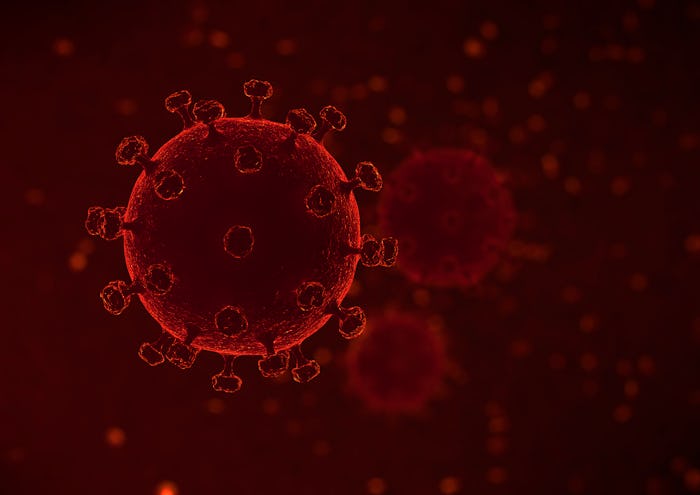News

Infant's Death After Testing Positive For Coronavirus Prompts "Full Investigation"
The Illinois Department of Public Health announced Saturday that an infant had died after testing positive for the coronavirus. Although the infant's cause of death is currently unknown, the state has launched a "full investigation" into the matter. While early research has shown that children's risk of experiencing death or severe illness as a result of the novel coronavirus is lower than that of adults and individuals with certain underlying health conditions, they're not immune.
"There has never before been a death associated with COVID-19 in an infant," Dr. Ngozi Ezike, the director of the Illinois Department of Public Health, said in a statement issued Saturday. "A full investigation is underway to determine the cause of death."
The infant, who was only identified as younger than 1 year old in Chicago and no details about their medical history have been released, was one of 13 new deaths announced Saturday in Illinois. As of Sunday, the state had at least 4,596 confirmed cases of coronavirus, or COVID-19, and 65 deaths. "If you haven't been paying attention, maybe this is your wake-up call," Ezike said Saturday in a press briefing.
The Illinois Department of Public Health has called on residents to do everything they can to prevent the spread of coronavirus. "If not to protect ourselves, but to protect those around us," the state agency said in a press release announcing the infant's death.
Dr. Allison Arwady, the Chicago Department of Public Health commissioner, told CBS This Morning on Monday that the infant's death is "very unusual," adding that they're "doing a thorough investigation."
"[We're] working really with the family, our hearts go out to them, the pediatrician, the medical examiner, the CDC, really wanting to make sure we're doing confirmatory testing, looking at everything that's underlying it," Arwady told CBS This Morning. "We're obviously concerned about it, but by and large, the main risk does remain in the older populations, the folks with the underlying medical conditions."
Earlier this month, a study published in Pediatrics showed COVID-19's effect on children may be less severe compared to the disease's impact on older adults. In a study of 2,143 children, researchers in China, where the COVID-19 outbreak began, found that 4% were completely asymptomatic while another 51% had mild illness and 39% experienced moderate illness. According to the study, 6% of children were reported to have experienced severe of critical illness; in contrast, researchers noted that 18.5% of adults were reported to have experienced severe or critical illness as a result of COVID-19.
"Of the 2,143 pediatric patients included in this study, only one child died and most cases were mild, with much fewer severe and critical cases than adult patients," a peer-reviewed pre-publication of the study read. "It suggests that, compared with adult patients, clinical manifestations of children's COVID-19 may be less severe."
But while researchers found that, overall, individuals under the age of 18 seemed less likely to be hit hard by COVID-19, one group did appear to be more vulnerable to severe illness. Of the 6% of children reported to have experienced severe or critical illness as a result of COVID-19, more than 60% were age 5 or younger, researchers said. Of that 60%, 40% were reported to be under the age of 12 months.
Additionally, the Centers for Disease Control and Prevention (CDC) has said that, to date, adults make up most of the known COVID-19 cases. Still, children can contract COVID-19. And although their symptoms may be milder, the CDC has noted that reported symptoms of COVID-19 in children include fever, runny nose, cough, vomiting, and diarrhea.
To help protect children from the virus, parents and caregivers are encouraged to oversee proper and frequent hand-washing and regularly disinfect frequently-touched surfaces, including toys. Children, like adults, are also cautioned to avoid people who are sick.
If you think you’re showing symptoms of coronavirus, which include fever, shortness of breath, and cough, call your doctor before going to get tested. If you’re anxious about the virus’s spread in your community, visit the CDC for up-to-date information and resources, or seek out mental health support. You can find all of Romper’s parents + coronavirus coverage here, and Bustle’s constantly updated, general “what to know about coronavirus” here.